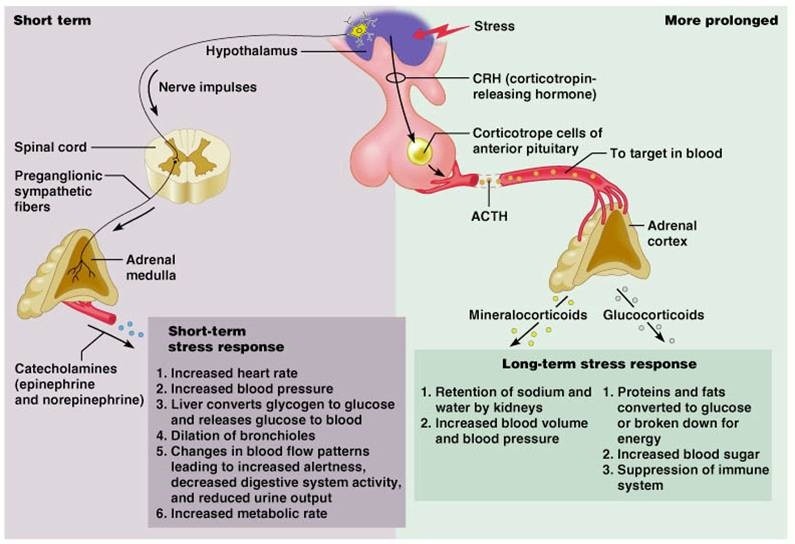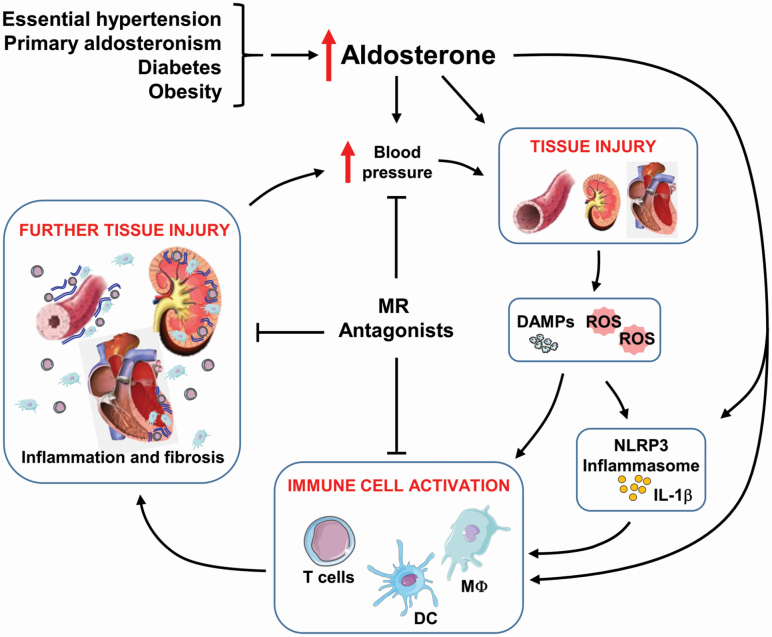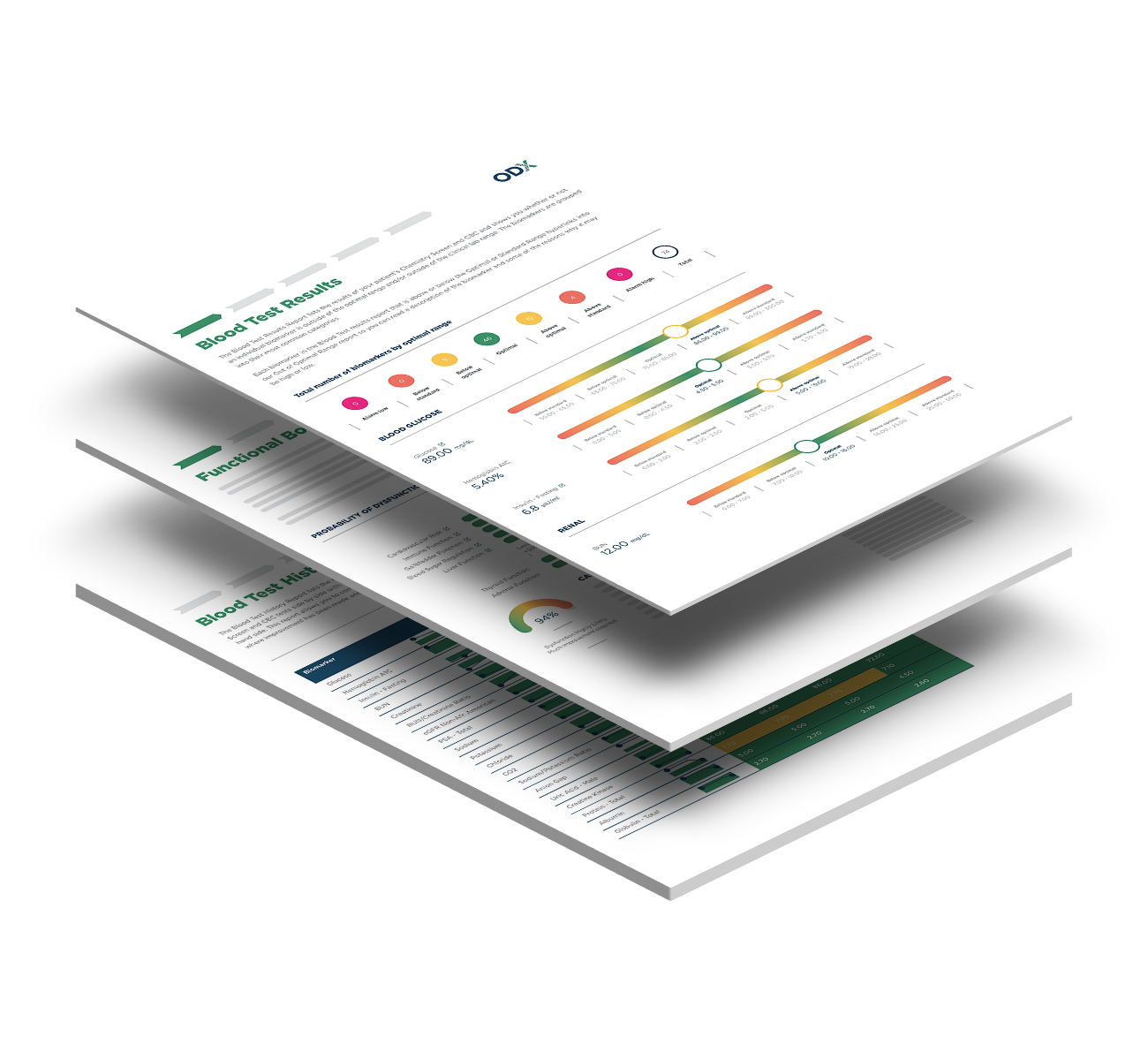Welcome to part 4 of the ODX Stress Biomarkers Series. In this post, the ODX Research team looks at the major hormonal changes that facilitate the stress response and associated immune activity.
The ODX Stress Biomarkers Series
- Stress Part 1: A Quick Overview
- Stress Part 2: How Do We Get Stressed Out?
- Stress Part 3: The Physiology of Stress
- Stress Part 4: Hormonal Control of the Stress Response
- Stress Part 5: Identifying Stress
- Stress Part 6: Disorders Associated with Stress
- Stress Part 7: Biomarkers of Stress Overview
- Stress Part 8: Biomarkers of Stress, Individual Markers
- Stress Part 9: Addressing Stress: Can We Treat It or Beat It?
- Stress Part 10: Nutrition and Stress
- Stress Part 11: Optimal Takeaways
Major hormonal changes that occur in response to stress include:[i]
- Catecholamines increase
- Corticosteroids increase
- Vasopressin increases
- Growth hormone increases (mainly in physical stress)
- Prolactin may increase or decrease
- Gonadotropins decrease
- Insulin decreases
- TSH, T3, and T4 decrease
Hormonal facilitation of the stress response involves the anterior hypothalamus, corticotropin releasing hormone, anterior pituitary, adrenocorticotropic hormone (ACTH), and finally the adrenal cortex which releases glucocorticoids and mineralocorticoids (corticosteroids):[ii]
|
Cortisol (glucocorticoid) |
Aldosterone (mineralocorticoid) |
|
|
Catecholamines cause general physiological changes that prepare the body for physical activity (fight-or-flight response) in the short term response. Some typical effects include increases in heart rate, blood pressure, and blood glucose levels, and other general reactions of the sympathetic nervous system. Corticoids are involved in a wide range of physiological processes including chronic stress response, immune response, and regulations of inflammation, carbohydrate metabolism, protein catabolism, blood electrolyte levels, and behavior.

Source: Lee, Do Yup et al. “Technical and clinical aspects of cortisol as a biochemical marker of chronic stress.” BMB reports vol. 48,4 (2015): 209-16. doi:10.5483/bmbrep.2015.48.4.275 This is an open-access article distributed under the terms of the Creative Commons Attribution Non-Commercial License ()
Summary of the physiological changes of the stress response: [iii]
- Mobilization of energy to maintain brain and muscle function
- Sharpened and focused attention on the perceived threat
- Increased cerebral perfusion rates and local cerebral glucose utilization
- Enhanced cardiovascular output and respiration
- Redistribution of blood flow
- Modulation of immune function
- Inhibition of reproductive physiology and sexual behavior
- Decreased feeding and appetite
- Adapting to a stressor occurs as a phase-based phenomenon called the General Adaptation Syndrome:
- Alarm
- Resistance
- Exhaustion
Immune System Effects of Stress
The link between stress and suppressed immunity is widely recognized.[iv] Exposure to stress can reduce circulating lymphocytes and interfere with their function, possibly impairing overall immunity. Stress-related cortisol has an immune-suppressing effect which can increase susceptibility to infection. In some cases, stress may enhance the immune inflammatory response and increase circulating pro-inflammatory cytokines.[v]
The increase in aldosterone associated with stress can amplify its effects on immunity including activation of the innate and adaptive immune systems resulting in increased inflammation, oxidative stress, endothelial dysfunction, and hypertension.[vi]
Immune Effects of Aldosterone

Source: Ferreira, Nathanne S et al. “Aldosterone, Inflammation, Immune System, and Hypertension.” American journal of hypertension vol. 34,1 (2021): 15-27. doi:10.1093/ajh/hpaa137 This is an Open Access article distributed under the terms of the Creative Commons Attribution Non-Commercial License
Hormonal changes that occur during stress drive the physiological changes that characterize the stress response. These changes increase blood pressure and blood glucose, and suppress immunity, changes that can become detrimental if prolonged.
References
[i] Ranabir, Salam, and K Reetu. “Stress and hormones.” Indian journal of endocrinology and metabolism vol. 15,1 (2011): 18-22. doi:10.4103/2230-8210.77573
[ii] Singh, K. "Nutrient and stress management." J Nutr Food Sci 6.4 (2016): 528.
[iii] Singh, K. "Nutrient and stress management." J Nutr Food Sci 6.4 (2016): 528.
[iv] Yaribeygi, Habib et al. “The impact of stress on body function: A review.” EXCLI journal vol. 16 1057-1072. 21 Jul. 2017, doi:10.17179/excli2017-480
[v] Kemeny, Margaret E. "The psychobiology of stress." Current directions in psychological science 12.4 (2003): 124-129.
[vi] Ferreira, Nathanne S et al. “Aldosterone, Inflammation, Immune System, and Hypertension.” American journal of hypertension vol. 34,1 (2021): 15-27. doi:10.1093/ajh/hpaa137






